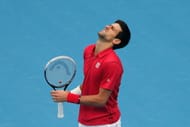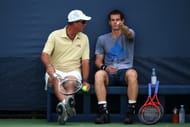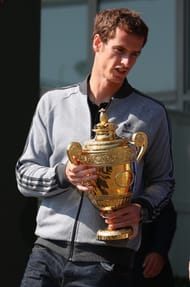Thus Djokovic, flustered at the thought that he may be tanking, may have felt that he needed a new stimulus, a driving force to motivate him so that he could recapture the form of 2011, resulting in him telephoning Becker immediately after he had lost the top spot to Nadal.
Despite the two not having playing styles that mirror each other’s, they do have some common traits in their game. Their outbursts on court are well documented with both players known to be extremely emotional on the court, with the occasional smash of a tennis racquet.
Ivan Lendl and Andy Murray on the other hand have undergone similar experiences in the course of their careers. Both are technically gifted, meticulous in their preparation and possess great knowledge with regards to the X’s and O’s of the game. But they share the dubious record of being the only two players to have lost in all of their first four appearances in Grand Slam finals since the Open era began in 1968. Lendl who was once called “Choke-as-lovakian” (a play on the word “Czechoslovakian”, Lendl’s country of birth) because of his tendency to choke at crucial junctures, went on to capture 8 Grand Slams. Lendl’s experience has transformed Murray’s game by helping him rein in his emotions and instead express his anger on the tennis ball, albeit in a controlled way.
The Czech-turned American has helped Murray become a mature player and control his temperament on the court, and the move has paid off with the Scot breaking his Grand Slam duck by winning the 2012 US Open and the 2013 Wimbledon. Murray’s association with Lendl had a cathartic effect on the latter as his ward achieved what he couldn’t – winning the Wimbledon title. Djokovic and Becker though share the ignominy of having failed to win the same Slam – the French Open.
Becker and Lendl find themselves in a situation akin to each other’s. Both their wards are extremely talented players, possess all the skills in the book and having any qualms about the physical aspects of their game would be exceedingly challenging. If at all there was to be a weakness in their game, it would lie in the most important aspect of the human body that separated the greats from the others – the brain. Both players have had problems with handling their emotions while on court.
With Murray it was about the memories of a bad point; the Scot would be haunted by a bad sequence that had occurred previously in the match and would thus lose focus on the current game. And when it came to facing the likes of Roger Federer, Nadal or Djokovic, Murray’s confidence would desert him. Consequently, the Scotsman would increasingly be on the defensive, allowing the opponent to dictate the proceedings of the match. As Lendl observed his student from close quarters, he immediately recognized these flaws. Murray changed his mindset and strategy and it immediately paid dividends as he won the gold medal in the 2012 Olympics. More success was to follow as Murray captured the 2012 US Open and the 2013 Wimbledon, becoming the first British man to win Wimbledon in 77 years.
On the contrary, Becker has little to tinker with in Djokovic’s game. The Serb is the ultimate competitor, hits every shot with a machine-like efficiency, can run for hours together and there is no part of the court that his gluten-devoid body cannot reach. But in 2013, Djokovic’s mind seemed to get the better of him. He seemed to squander opportunities presented to him and was guilty of taking his foot off the gas, allowing his opponent to come back into the match. Outbursts began accumulating and the mental toughness that embodied his tennis slowly began to erode. Becker will have to ensure that Djokovic remains on his toes all the time and regains the impetus that drove him to 53 consecutive wins in 2011.
Twenty three years after Becker and Lendl last met at the Rod Laver Arena as players, they may find themselves in a similar position come January in the Australian Open, as the stage is set for the resumption of a fascinating rivalry, this time with a refreshing twist.
How did Novak Djokovic meet Jelena Ristic? All about the most admired couples in tennis



